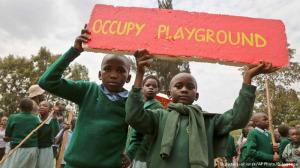By Delisa Morris
Impunity Watch Reporter, South America
QUITO, Ecuador – – Two Shaman along with a family of four died just before midnight on Tuesday. The family was participating in a healing ceremony when the hot springs they were bathing in, located in the northern Andean province of Imbabura, leaked a poisonous gas, probably methane.

Nearby a seven-year-old-boy, the couples son, slept in the car. The tragedy came after he fell asleep while he waited for the night ceremony to finish.
Gabriel Bunay and his wife Martina Tacuri were taken to a thermal rockpool inside an indigenous settlement with their three children for an ‘energy healing’ ritual after being met by a local in the nearby city of Otavalo.
Shaman Gladys Tercero died along with another Shaman, her helper. The spring, a thermal rockpool, began emitting a poisonous gas during the ceremony, thought to be methane gas.
Police chief Jacqueline Haro added: “The boy that survived fell asleep inside his family’s car after his mother told him to go and rest because the water was cold.”
“He is now in a children’s home receiving counselling while we wait for relatives to come and pick him up” she added.
“It’s an accidental death resulting from the inhalation of toxic gases emanating from the thermal waters,” the interior ministry said in a statement.
Local firefighter Carlos Lopez told AFP that toxicological tests had not yet been performed, “but it is confirmed that it is from inhalation of gases.”
t the site, authorities found homemade cane liquor, candles, eggs, medicinal plants, entrails and dead birds, as well as the business card of a shaman offering to solve problems with money, love, work, business and travel.
This isn’t the first time a participant has died during a ritual with Shamans:
Last April British student Henry Miller died at a tribal ceremony in neighboring Colombia.
Henry, 19, from Bristol, collapsed after taking a hallucinogenic drink called yage at a remote rainforest near the village of Mocoa in the south-east of the country.
For more information, please see:
London Evening Standard – Six dead from Healing Ceremony Methane Poisoning in Ecuador – 22 Jan. 2015
Jamaica Observer – Six die in shamanic ritual in Ecuador – 22 Jan. 2015
Business Standard News – Six die in shamanic ritual in Ecuador – 23 Jan. 2013
The Straits Times – Six die in shamanic ritual in Ecuador – 22 Jan. 2013


